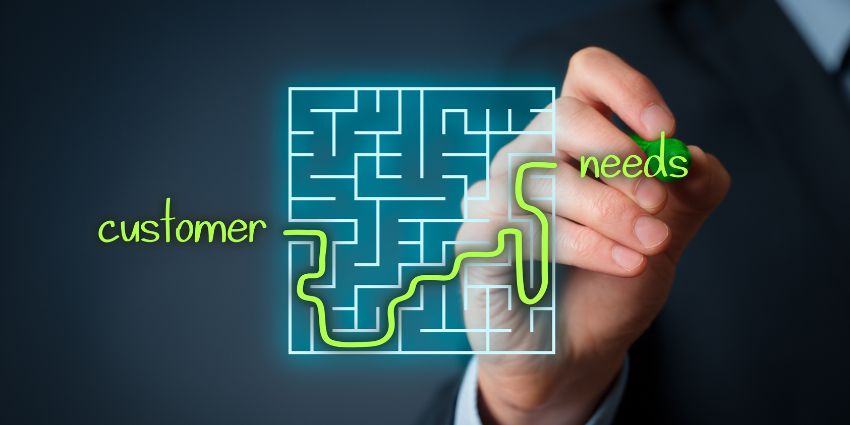Staying one step ahead of your customers’ needs can make all the difference between average and exceptional experiences. In this article, we’ll explore what it means to deliver proactive service in a contact center and differentiate between proactive and reactive service. We’ll also share examples of proactive service in action – and the essential skills contact center agents need to emulate them.
What Does it Mean to Deliver Proactive Service in a Contact Center?
Proactive service represents a paradigm shift in customer support, where your agents anticipate and preemptively address customer needs, rather than always waiting for inquiries or issues to emerge. They will take the initiative to offer assistance and value-added services that enhance the customer experience. It embodies a forward-thinking approach – driven by a deep understanding of customer preferences, behavior patterns, and pain points.
Proactive Service vs Reactive Service: What’s the Difference?
The key distinction between proactive and reactive service lies in the timing and approach.
Imagine a scenario where you’re waiting for the phone to ring or the chat box to light up before you spring into action. That’s reactive service in a nutshell. It’s all about responding to customer inquiries or issues after they’ve already occurred, essentially playing catch-up instead of taking the lead.
While reactive service certainly has its place, it often leaves customers feeling like they’re the ones driving the conversation, and it can sometimes feel like you’re constantly putting out fires.
Now, let’s flip the script. With proactive service, you’re not just waiting for customers to reach out to you — you’re actively anticipating their needs and addressing them before they even realize they have them. Proactive service is about being predictive rather than reactive, and it’s all about creating wow moments that leave customers feeling impressed and valued.
Examples of Proactive Service
To understand how it works, let’s look at a few examples of proactive service in different industry contexts:
Example 1: Proactive service in a telecom call center
Imagine a telecom call center that monitors network performance in real-time and proactively reaches out to customers in areas experiencing service disruptions. By notifying customers of potential issues before they notice them, the call center demonstrates proactive service, mitigating frustration and enhancing customer satisfaction.
Example 2: Proactive service delivered in health insurance
In a health insurance support center, proactive service may involve sending personalized reminders to policyholders about upcoming preventive care appointments or prescription refills. By helping customers stay on top of their healthcare needs, the support center adds value and fosters loyalty.
Example 3: A home appliance buyer receives proactive service
After purchasing a new home appliance, a customer receives proactive service from the manufacturer’s contact center, which sends timely maintenance tips and reminders to ensure optimal performance. By providing proactive guidance and support, the contact center helps the customer maximize the lifespan of their appliance and enhances the overall ownership experience.
What are the Skills Contact Center Agents Need to Provide Proactive Service?
To become pros at proactive service, you need the following skills:
- Active listening: Effective communication skills – including active listening – enable agents to discern underlying customer needs and preferences, facilitating proactive service delivery.
- Empathy and emotional intelligence: Agents who can empathize with customers and understand their emotions are better equipped to anticipate and address their needs proactively.
- Analytical skills: Proficiency in data analysis enables agents to identify trends, patterns, and opportunities for proactive service delivery based on customer behavior and feedback.
- Technical aptitude: Familiarity with relevant software, tools, and systems allows agents to leverage technology for proactive outreach, data analysis, and problem-solving.
- Product knowledge: In-depth knowledge of products and services enables agents to anticipate potential issues, offer relevant solutions, and provide proactive guidance to customers.
- Time management: Effective time management skills enable agents to prioritize tasks, allocate resources efficiently, and respond proactively to customer needs in a timely manner.
- Creativity and innovation: Agents who think outside the box and explore creative solutions are better equipped to anticipate and address customer needs in unexpected ways.
- Adaptability: The ability to adapt to changing circumstances and customer preferences allows agents to stay agile and responsive, delivering proactive service that evolves with customer needs.
- Problem-solving mindset: A proactive problem-solving mindset encourages agents to approach challenges with a solutions-oriented attitude, seeking opportunities to anticipate and address customer needs proactively.
Proactive Service Strategies that Work
Organizations can take the following steps to achieve proactive service excellence:
1. Implement predictive analytics
Leverage predictive analytics tools to forecast customer behavior, identify trends, and anticipate needs. This allows you to proactively tailor services and solutions to meet customer expectations.
2. Personalize outreach
Use customer data to personalize proactive outreach and communication – delivering targeted messages, offers, and support that resonate with individual customers’ needs and preferences.
3. Offer self-service options
Empower customers to take control of their experiences. You can achieve this through self-service options such as knowledge bases, FAQs, and online resources that enable them to find answers and solutions independently.
4. Encourage feedback and engagement
Solicit feedback from customers through surveys, feedback forms, and interactive channels, then use this valuable insight to identify opportunities for proactive service improvement and innovation.
The Undeniable ROI of Proactive Service in Contact Centers
By addressing issues proactively and preventing escalations, contact centers can reduce handle times, minimize repeat contacts, and streamline operations, resulting in greater efficiency and cost savings. What’s more, it builds stronger customer relationships – which, in turn, translates to higher customer lifetime value, increased retention rates, and greater opportunities for upselling and cross-selling. This makes proactive service one of the foundational capabilities of any contact center.
Did you find this article useful? Follow us on social media for more such insights.







